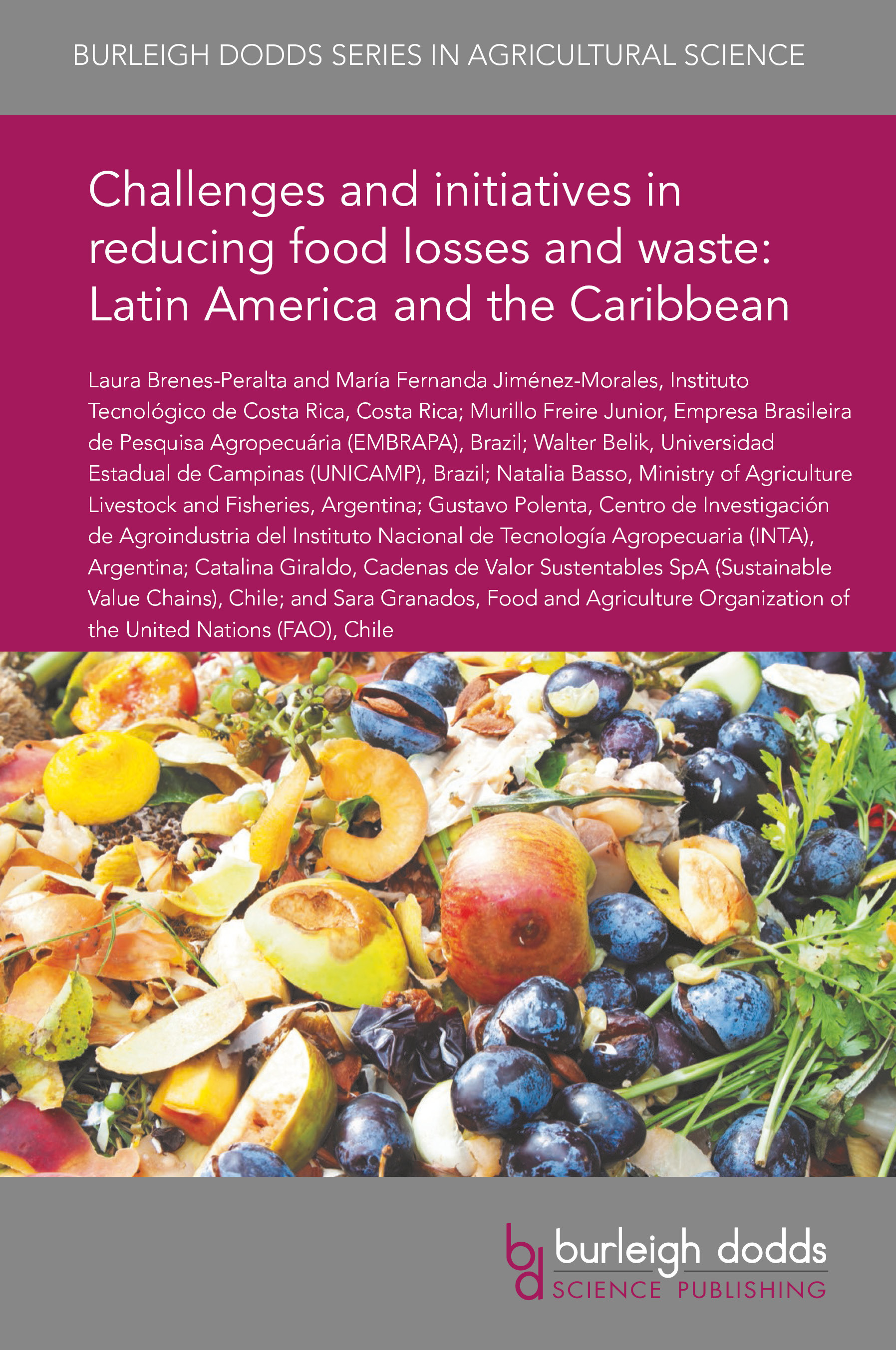Ver ítem
- xmlui.general.dspace_homeCentros e Institutos de InvestigaciónCIA. Centro de Investigaciones de AgroindustriaInstituto de Tecnología de AlimentosPartes de librosxmlui.ArtifactBrowser.ItemViewer.trail
- Inicio
- Centros e Institutos de Investigación
- CIA. Centro de Investigaciones de Agroindustria
- Instituto de Tecnología de Alimentos
- Partes de libros
- Ver ítem
Challenges and initiatives in reducing food losses and waste: Latin America and the Caribbean
Resumen
The Latin America and the Caribbean (LAC) Region comprises 42 countries, from Mexico to the southernmost point of the continent, including the territories in the Caribbean Sea (PNUD, 2019). It is a heterogeneous region in ecological and socio-economic terms, integrating native inhabitants with immigrants from Europe, Asia and Africa. It is responsible for a significant portion of the global food supply, produced under diverse agroclimatic zones,
[ver mas...]
The Latin America and the Caribbean (LAC) Region comprises 42 countries, from Mexico to the southernmost point of the continent, including the territories in the Caribbean Sea (PNUD, 2019). It is a heterogeneous region in ecological and socio-economic terms, integrating native inhabitants with immigrants from Europe, Asia and Africa. It is responsible for a significant portion of the global food supply, produced under diverse agroclimatic zones, productive systems and socioeconomic sectors. Production systems range from intensive monocultural systems to family agriculture, agroforestry and ancestral production systems, surrounded by forest and protected areas. LAC accounts for 14% of the global production and 23% of exports of agricultural and fisheries commodities. It is a major exporter of soybeans, maize, poultry, coffee, sugar and a variety of fruits and vegetables (OECD and FAO, 2019). Seventy percent of the population in LAC lives in cities (PNUD, 2019) and the region is characterized by increasing levels of inequality (Kliksberg, 2000). Whilst malnutrition has reduced by 6.8% over the last 20 years, the number of undernourished people increased for the third consecutive year: in 2017 it reached 39.3 million, mainly in South America. One in ten children under 5 years of age is stunted; one in four adults is obese; and one in five women of childbearing age suffers from anaemia. The problems of malnutrition and undernutrition in the region are the result of profound changes in regional food systems, driven by growing urbanization, changing of food patterns and new ways of producing and processing food (FAO, OPS, WFP and UNICEF, 2018). Reducing Food losses and waste (FLW) has been identified as a priority in the region as a way of boosting the region’s economy, food security and nutrition, environmental performance and sustainability of food production. An estimated 15% of the region’s available food is lost or wasted each year, amounting to 6% of the world total (FAO-RLC, 2014b). More recent estimations indicate FLW at an average of 223 kg of FLW/person, equivalent to 127 million t. FLW figures for individual sectors include 25% in cereals, 40% in roots and tubers, 20% in grains, 55% in fruits and vegetables, 20% in meat, 20% in dairy products and 33% of fish and seafood (FAO-RLC, 2016). The following sections describe the steps that the Latin American and the Caribbean Region has taken to address the problem of FLW.
[Cerrar]

Autor
Brenes Peralta, Laura;
Jiménez Morales, María Fernanda;
Murillo Freire, Junior;
Belik, Walter;
Basso, Natalia;
Polenta, Gustavo Alberto;
Giraldo, Catalina;
Granados, Sara;
Fuente
Preventing food losses and waste to achieve food security and sustainability / edited by Elhadi M. Yahia. Cambridge, United Kingdom : Burleigh Dodds Science Publishing, 2020
Fecha
2020-03
Serie
Burleigh Dodds series in agricultural science
ISBN
10 1786763001
13 9781786763006
13 9781786763006
Formato
pdf
Tipo de documento
parte de libro
Proyectos
(ver más)
Palabras Claves
Derechos de acceso
Restringido
 Excepto donde se diga explicitamente, este item se publica bajo la siguiente descripción: Creative Commons Attribution-NonCommercial-ShareAlike 2.5 Unported (CC BY-NC-SA 2.5)
Excepto donde se diga explicitamente, este item se publica bajo la siguiente descripción: Creative Commons Attribution-NonCommercial-ShareAlike 2.5 Unported (CC BY-NC-SA 2.5)

